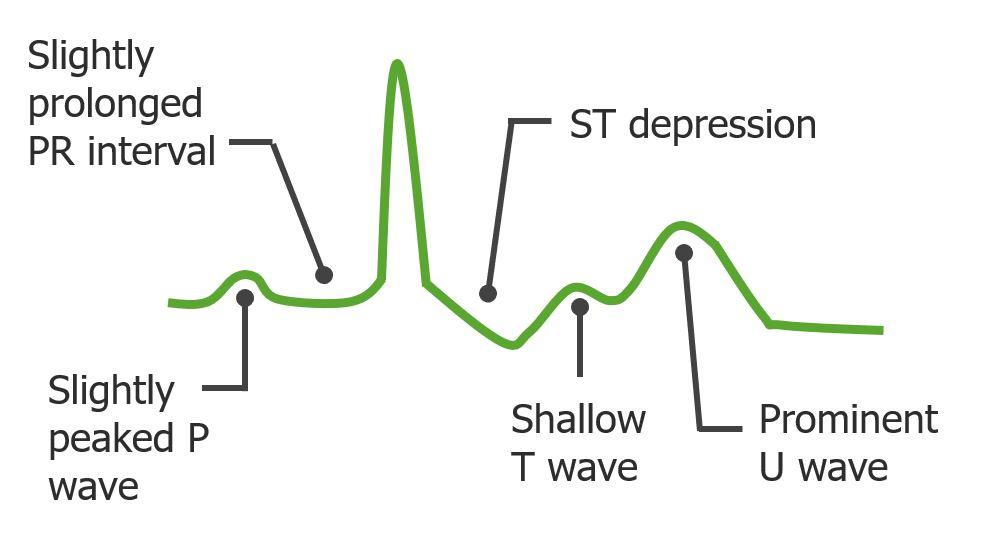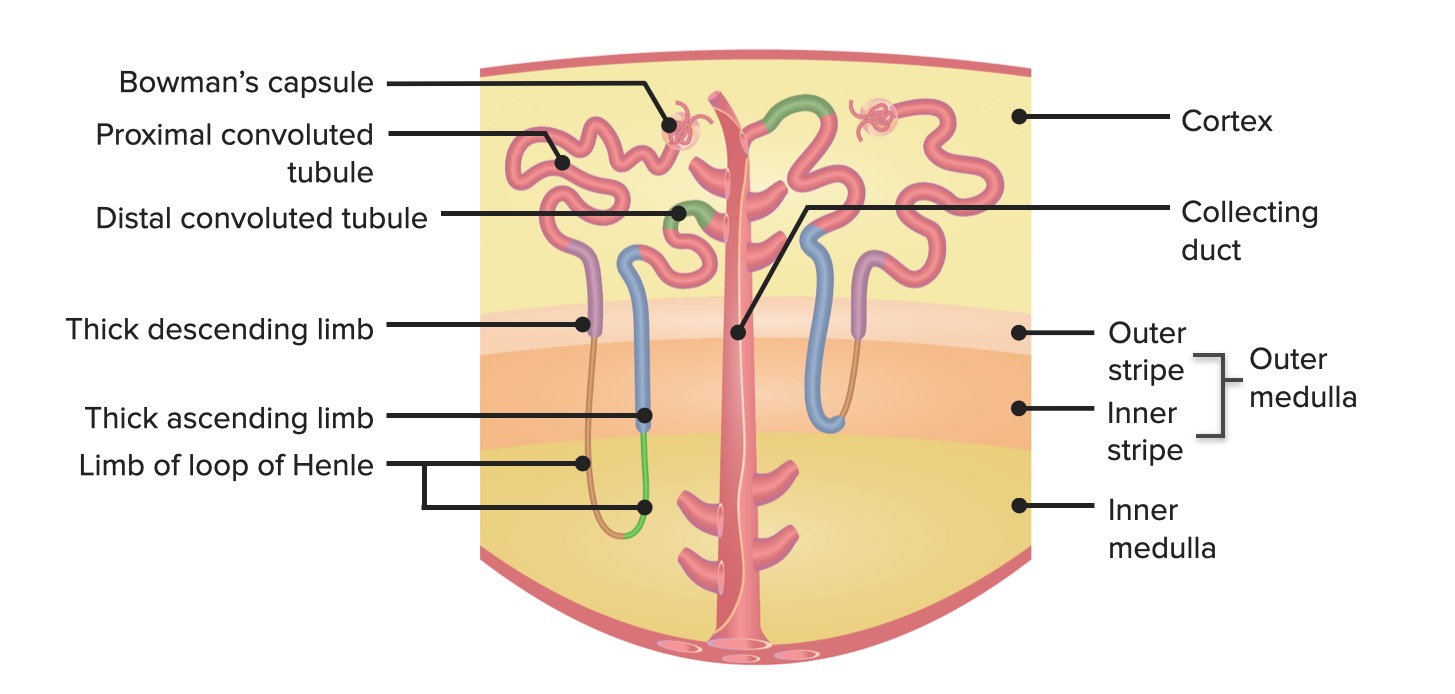Playlist
Show Playlist
Hide Playlist
Transcellular Shift – Hypokalemia
-
Slides Potassium Disorders Hypo and Hyperkalemia.pdf
-
Download Lecture Overview
00:01 So we've talked about the physiology of potassium. 00:03 We talked about those four factors that regulate potassium at the principal cell. 00:07 I want you to remember those as we go through our different mechanisms for hypokalemia. 00:12 So I like to group things into boxes and let's talk about our first mechanism of how patients get hypokalemic and that is transcellular shift. 00:21 So there are a couple of things that can cause shift of potassium from that extracellular fluid compartment to the intracellular fluid compartment. 00:29 Now remember when you have transcellular shift total body potassium is the same we are simply shifting from the extracellular compartment to the intracellular compartment. 00:38 Things that you need to be aware of that do this are insulin. 00:42 Insulin promotes potassium entry into the cell by stimulating that sodium potassium ATPase. 00:48 We also have shift of potassium from ECF to the ICF through beta-adrenergic agonist So things like catecholamines or drugs. 00:57 That act by Beta 2 receptors things like terbutaline or albuterol. 01:01 Well increase potassium entry into the cell by increasing that activity at the sodium-potassium ATPase. 01:09 So when a patient has alkalosis, protons will leave the cell in order to lower that extracellular pH but we have to maintain electroneutrality. 01:17 So potassium will then enter the cell in exchange and patients can become hypokalemic because of that. 01:24 And then finally, there's an entity termed hypokalemic periodic paralysis. 01:30 This is characterized by acute attacks precipitated by sudden movement of potassium into cells. 01:37 Now when that happens, it can lower the plasma potassium as low as 1.5 to 2.5 milli equivalents per liter, so you can see why patients can get paralyzed from this. 01:46 Precipitated by things that would actually cause transcellular shift. 01:50 That means rest after exercise, stress, What and when we're stressed? Were actually activating beta adrenergic receptors and high carbohydrate meals. 02:00 So again, high carbohydrate meals are going to induce insulin secretion and insulin up-takes potassium into that cell. 02:09 Now this can be due to familial reasons. 02:11 So it's an autosomal dominant disorder where mutations are in the dihydropyridine calcium channel and skeletal muscle. 02:17 It's actually quite rare. 02:19 Little bit more common would be the acquired form which is typically associated with thyrotoxicosis. 02:25 Now your board books and your step. 02:27 Your USMLE exams will like to typically tell you that these are predominantly young asian males, but I do want you to be on the lookout because this can happen to anybody in the population my last patient who had hypokalemic periodic paralysis was a 22 year old young college student who was caucasian, who was just celebrating his ending of his midterms. 02:47 He went out to a pub and was enjoying some beer and pretzels and at three o'clock in the morning he woke up paralyzed from the waist down. 02:57 So in going to the Emergency Medical Services brought him to the hospital his potassium was 1.9 and a very astute provider checked thyroid function tests on him and sure enough he had graves disease. 03:09 So he was thyrotoxic, and by treating his graves disease we were able to ameliorate his hypokalemic periodic paralysis. 03:15 So I just want you to be on the lookout when it comes to this particular disorder because it does exist.
About the Lecture
The lecture Transcellular Shift – Hypokalemia by Amy Sussman, MD is from the course Potassium Disorders: Hypo- and Hyperkalemia.
Included Quiz Questions
Which of the following will cause a shift of potassium ions from the intracellular to the extracellular compartment?
- Metabolic acidosis
- Hyposmolarity
- Ingesting sodium
- Respiratory alkalosis
- Thyrotoxicosis
Which of the following is true regarding hypokalemic periodic paralysis?
- A thyroid function test should be ordered.
- It is caused by a sudden decrease in total body potassium.
- A high-protein meal is a precipitating factor.
- It is caused by the sudden inhibition of Na/K ATPase.
- It is caused by a mutation of the potassium channel in muscles.
Customer reviews
5,0 of 5 stars
| 5 Stars |
|
5 |
| 4 Stars |
|
0 |
| 3 Stars |
|
0 |
| 2 Stars |
|
0 |
| 1 Star |
|
0 |





